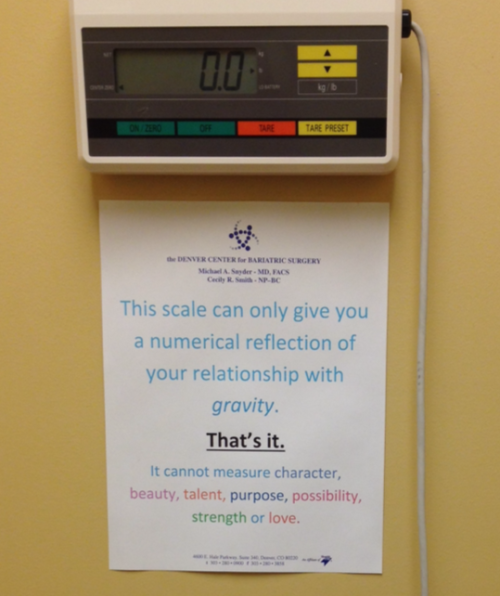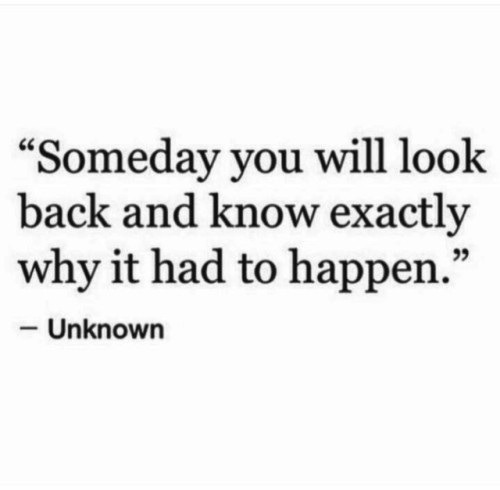Ahhh! This Is So Cool!
Ahhh! This is so cool!
More Posts from Our-cosy-library and Others
Hmm, maybe
“We never discard our childhood. We never escape it completely. We relive fragments of it through others. We live buried layers through others. We live through others’ projections of the unlived selves.”
—
Anaïs Nin, The Diary of Anaïs Nin (1944–1947)
الأطفال تتعلم بشكل أفضل عندما يكون بمقدورها التجول في أنحاء الفصل
بالنسبة لمعظم الأطفال، يمكن تقسيم اليوم الدراسي العادي إلى أجزاء من الحركة والجلوس بثبات. الفرصة (الفسحة): وقت الركض و اللعب. حصة الصالة الرياضية: تكرار للفرصة. جميع الحصص الأخرى: قدم على الأرض، الثبات في الكرسي، ويرجى عدم التململ أكثر من اللازم.
ولكن كما تفسر صحيفة نيويورك تايمز، فإن عددا متزايدا من خبراء التعليم يجادلون بأن النظام المعتاد عليه صارم أكثر من اللزوم. يفترض على الأطفال أن تتحرك كثيرا. خاصة أثناء التعلم.
وليس ذلك من أجل الفوائد الصحية فقط، ان الطالب الأكثر نشاطا، هو أيضا أفضل من غيره كطالب. وقال( ستيف بويل)، المؤسس المشارك للرابطة الوطنية الأمريكية لمحو الأمية البدنية، لصحيفة "التايمز": "لا يفترض من الأطفال الجلوس طوال اليوم وتلقي المعلومات". وضعت منظمته مجموعة من أشرطة الفيديو القصيرة، التي تأخذ الأطفال في جولة من النشاط البدني - توفر للطفل فرصة ل " التنفس، والاسترخاء، وإعادة الشحن، وإعادة التركيز"، كما يسميها الموقع على شبكة الإنترنت. ووفقا لصحيفة التايمز، استخدمت أشرطة الفيديو في الفصول الدراسية ونوادي الفتيان والفتيات في 15 ولاية مختلفة.
الرياضة و الحركة تنشط الذاكرة. ووجدت دراسة نشرت في العام الماضي في مجلة "طب الأطفال" أن إتاحة الوقت للنشاط البدني خلال الدروس ساعد طلاب المدارس الابتدائية على تحسين أدائهم في كل من دروس الرياضيات واللغة؛ وسطيا، كانت الأطفال في مجموعة الحركة تسبق الأطفال في مجموعة الجلوس بثبات بنحو أربعة أشهر في مستوى تعلمهم بحلول نهاية التجربة التي دامت لمدة عامين. إن هبات النشاط هذه ليس بالضرورة أن تأخذ وقتا بعيدا عن الصف: في مقال بمجلة (واشنطن بوست) عام 2015، أوضحت (أليتا مارغوليس)، مديرة مركز التعليم الإلهامي، أنه باستخدام القليل من الإبداع فقط، يمكن دمج الحركة مباشرة في عملية التدريس: وتقول: "عندما يراقب الطلاب بعضهم البعض لمدة 30 ثانية أثناء الركض، يحصلون على فرصة لممارسة أساليب قياس الوقت". "هز علبة من الحليب بقوة كبيرة لتشكيل الزبدة يعلم الطلاب عن الحقائق الصعبة للحياة في ميدان الصناعة وأيضا يعلمهم عن أجسامهم، وحمض اللبنيك وما يحدث عندما تستخدم العضلات بشكل كثيف جدا لفترة طويلة جدا". هناك فائدة في ذلك للجميع أيضا: يحصل الأطفال على فرصة(فسحة) اخرى نوعا ما. ودرس أكثر متعة من المحاضرة أو ورقة العمل العادية المعتاد عليها. وهذا بدوره، يعطي للأساتذة طلاب أكثر انتباها و أكثر اندماجا بالدرس.
صفحتنا على الفيسبوك :
http://facebook.com/maktabatona1
المقال الأصلي باللغة الانكليزية:
http://nymag.com/scienceofus/2017/03/kids-learn-better-when-they-can-move-around-class.html?mid=twitter_scienceofus
some helpful links
for surviving grad school in the life sciences*
*that I’ve personally used and loved, or have heard good things about. This definitely is not meant to be an all-inclusive masterlist created by an omniscient being though not from lack of trying.
Research/Data Analysis
GraphPad Prism - for all your graphing needs! I use this program exclusively for all my data visualizing, and it can also do some basic statistics. It does cost $$, but your institution or lab may already have a subscription.
NIH ImageJ - free image analysis software (eg. cell counting, quantifying western band intensity, etc), and since it’s open source, there are lots of free plug-ins available to download.
R Studio / R Project - free statistical software. It’ll take some time learning (via tutorials or someone showing you), but it’s a pretty awesome program. I don’t personally use it for stats, but I know many colleagues who do.
Dilution Calculator (C1V1=C2V2) and Molarity Calculator and Outlier test - great for double-checking your math (or doing all the work for you if you’re like me and math is just not your brain’s jam).
IHC World - the motherload of everything IHC or antibody-related, including protocols
BioNumbers - helpful repository of any number you may need for biology-related research (eg. how much DNA or RNA is in a mammalian cell)
Statistics for Biologists - collection of articles about statistical issues that biologists should be aware of
Writing
Mendeley Citation Manager - a (free!) way to save and organize papers using a browser plug-in, along with a Word doc plug-in so you can insert in-text citations and automatically build a reference page when writing.
Academic Writing Resource - provides the “nuts and bolts” for academic writing, from the University of Manchester
Organizing academic research papers - comprehensive guide on organizing and writing academic research papers from Sacred Heart University
Guide on using Word for writing a Dissertation - such as formatting tips, from University of Michigan
Dissertation templates - from Duke University, available for Word and LaTex (note that every graduate program may have different requirements for formatting, so please only use this resource as an example and/or helpful guide)
PubMed Journal Finder - helps you find the most appropriate journal (from PubMed) to publish your paper in (or find new journals related to your research to check out)
BioRender - If you’re a biologist, this thing is a lifesaver when it comes to creating figures/schematics for papers and presentations. Limited access is free to students for private use (like class presentations).
LaTex - a document preparation program that’s very science-friendly. I’ve never used it, but I wish I did after hearing how much easier it would’ve made things.
Organization
Box Sync or Dropbox - to easily share files between computers (like protocols with everyone in the lab, or editing manuscripts with multiple authors). I personally like Dropbox better and am willing to pay for more space (Box Sync sometimes has delays in syncing).
Google calendars, or some sort of electronic calendar - for scheduling your day, because grad school can get hectic!
Bear - a note-taking app for Macs and other Apple products. I don’t personally use it (I like physical notes), but my old lab mate uses it to keep track of all the notes during his meetings with our previous PI. He’s been using it for years and says it works really well.
Labstep - cloud-based documentation for the entire lab–including notebooks, inventories, data collection and downstream analyses, etc. I personally never used it but it sounds amazing, and would streamline so many aspects in lab. Good to keep in mind for anyone planning on becoming a PI!
Career Development
LinkedIn - if you haven’t already, create an account (even as a student!) This is a great and common way to keep in touch with your network, look for and apply to jobs, and get noticed by companies.
Research Gate - like LinkedIn but for researchers. Their best feature imo is their forum, where users ask research-related questions that the community of scientists help answer.
NIH Office of Intramural Training and Education (OITE) - they regularly host free and open-to-the-public webinars on career development for science and health majors (college and grad school-level)
لا أستطيع أن أكتبَ عن دمشق، دون أن يُعرِّشَ الياسمين على أصابعي. ولا أستطيع أن أنطقَ اسمها، دون أن يكتظَّ فمي بعصير .المشمش، والرمان، والتوت، والسفرجل
Nizar Qabbani, A Green Lantern on Damascus’ Door (via fatimahabdullahm)
At 23, JK Rowling was broke. Tina Fey was working at the Y.M.C.A. Oprah had just gotten fired from her first job as a TV reporter and Walt Disney had declared bankruptcy.
Read This If You’re 23 And Lost by Heidi Priebe (via twentysomethingstate)
Have you heard about mole genders?










I’ve heard of this concept in sci-fi, but thought it was absolutely made up. I know some fish and frogs can change genders, but not in cycles like this. Wild. If I slapped this down in some alien world without explanation, I’d laugh in my own face. But no, real biology IS that bizarre.
Image descriptions:
Keep reading
If you have a senior to check on ask them to "borrow" something small so they think they're helping you.
My mom (72) recently downsized and moved close enough to me that checking on her in person regularly is not really out of my way, but when I was obvious about it she wouldn’t let me “stop-by” because she was, “fine”.
Well, one day I actually needed some aluminum foil so I called and asked if I could borrow enough to cover a baking tin because I didn’t want to run to the store. She said sure, but when I got to her house she needed furniture moved, a wasp nest removed, and her coffee pot fixed. After I got the foil I mentioned each thing cautiously and she let me take care of them for her. So next weekend I’ll need a cup of rice and check on her again.









Botanic academia


-
 unanocheenrio liked this · 1 month ago
unanocheenrio liked this · 1 month ago -
 littlehaize reblogged this · 1 month ago
littlehaize reblogged this · 1 month ago -
 lyndalinn reblogged this · 1 month ago
lyndalinn reblogged this · 1 month ago -
 raymossrex5 liked this · 1 month ago
raymossrex5 liked this · 1 month ago -
 missboogsie reblogged this · 1 month ago
missboogsie reblogged this · 1 month ago -
 missboogsie liked this · 1 month ago
missboogsie liked this · 1 month ago -
 flairina reblogged this · 1 month ago
flairina reblogged this · 1 month ago -
 ometochtli2rabbit liked this · 1 month ago
ometochtli2rabbit liked this · 1 month ago -
 dearvsheadlights reblogged this · 2 months ago
dearvsheadlights reblogged this · 2 months ago -
 dearvsheadlights liked this · 2 months ago
dearvsheadlights liked this · 2 months ago -
 finnhuckery reblogged this · 2 months ago
finnhuckery reblogged this · 2 months ago -
 frank1915 liked this · 2 months ago
frank1915 liked this · 2 months ago -
 lookingformyperfectsandwich reblogged this · 2 months ago
lookingformyperfectsandwich reblogged this · 2 months ago -
 snipplesmctoots liked this · 2 months ago
snipplesmctoots liked this · 2 months ago -
 mojomatao liked this · 2 months ago
mojomatao liked this · 2 months ago -
 thedrugdude liked this · 2 months ago
thedrugdude liked this · 2 months ago -
 scurvyeunuch reblogged this · 2 months ago
scurvyeunuch reblogged this · 2 months ago -
 edwardabbeyhoffman liked this · 2 months ago
edwardabbeyhoffman liked this · 2 months ago -
 crossdresserica liked this · 2 months ago
crossdresserica liked this · 2 months ago -
 oshea55 reblogged this · 2 months ago
oshea55 reblogged this · 2 months ago -
 oshea55 liked this · 2 months ago
oshea55 liked this · 2 months ago -
 onebad69cat liked this · 2 months ago
onebad69cat liked this · 2 months ago -
 rorydbe liked this · 2 months ago
rorydbe liked this · 2 months ago -
 oshea52 reblogged this · 2 months ago
oshea52 reblogged this · 2 months ago -
 lonelinessfollowsme reblogged this · 2 months ago
lonelinessfollowsme reblogged this · 2 months ago -
 themightysudds liked this · 2 months ago
themightysudds liked this · 2 months ago -
 moeder-geit reblogged this · 2 months ago
moeder-geit reblogged this · 2 months ago -
 crossedsardines liked this · 2 months ago
crossedsardines liked this · 2 months ago -
 benshanti liked this · 2 months ago
benshanti liked this · 2 months ago -
 1snarkysir reblogged this · 2 months ago
1snarkysir reblogged this · 2 months ago -
 bearcat9193 liked this · 2 months ago
bearcat9193 liked this · 2 months ago -
 hmmwhatsallthis reblogged this · 2 months ago
hmmwhatsallthis reblogged this · 2 months ago -
 mdstroup2142 reblogged this · 2 months ago
mdstroup2142 reblogged this · 2 months ago -
 mdstroup2142 liked this · 2 months ago
mdstroup2142 liked this · 2 months ago -
 music-friends-and-smiles liked this · 2 months ago
music-friends-and-smiles liked this · 2 months ago -
 bennhealy liked this · 2 months ago
bennhealy liked this · 2 months ago -
 idle-drifter reblogged this · 2 months ago
idle-drifter reblogged this · 2 months ago -
 idle-drifter liked this · 2 months ago
idle-drifter liked this · 2 months ago -
 prograb47 reblogged this · 2 months ago
prograb47 reblogged this · 2 months ago -
 prograb47 liked this · 2 months ago
prograb47 liked this · 2 months ago -
 anch0rdownyourfeet reblogged this · 2 months ago
anch0rdownyourfeet reblogged this · 2 months ago -
 scintillatingbeing liked this · 3 months ago
scintillatingbeing liked this · 3 months ago -
 i-smell-books liked this · 3 months ago
i-smell-books liked this · 3 months ago -
 sassierkale liked this · 3 months ago
sassierkale liked this · 3 months ago -
 anasaurus-wreck reblogged this · 3 months ago
anasaurus-wreck reblogged this · 3 months ago -
 tyrannosaurustex reblogged this · 3 months ago
tyrannosaurustex reblogged this · 3 months ago
Here I share some scientific, artistic, literary and more material that I find interesting and important. I'm 30, studied biology in the University of Damascus. هنا اترجم بعض المقالات و المواد العلمية و الادبية و المواضيع التي اجدها مهمة و مثيرة للاهتمام.عمري 30 سنة, ادرس علم احياء بجامعة دمشق
80 posts